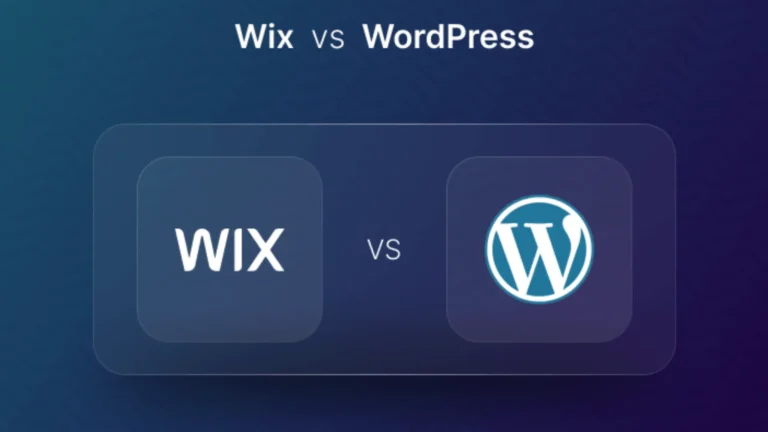Table of Contents
Influencer marketing has become a potent tool for companies in the modern digital era to advertise their goods and reach a larger audience. Nevertheless, what precisely is influencer marketing? And how can you create a plan that would effectively unlock its potential? This essay will examine the idea of influencer marketing, outline its advantages, and give you important tips on how to develop a productive influencer marketing plan of your own.
What is Influencer Marketing?
Influencer marketing is a type of advertising in which companies work with powerful people, sometimes known as influencers, to market their goods or services. These influencers are seen as reliable sources by their audience since they have built up credibility and a sizable fan base in a certain sphere or sector.
Influencer partnerships enable brands to use their influence to expand their audience reach and raise brand awareness. Influencer marketing frequently occurs on social media sites like Instagram, YouTube, TikTok, and blogs, where influencers provide interesting content that highlights the brand’s goods or services.
The Power of Influencers in the Digital Landscape
In today’s digital landscape, consumers are becoming increasingly immune to traditional advertising methods. They value authenticity and seek recommendations from sources they trust. This is where influencers play a crucial role. Their authenticity and ability to connect with their audience make them valuable partners for brands seeking to establish trust and credibility.
Influencers have the power to sway consumer opinions and purchasing decisions through their content. Their recommendations and endorsements can have a big impact on how people view a business and how many products are sold. Businesses may use influencers’ reach and influence to grow their customer base and boost conversions by using their authority.
How to Identify the Right Influencers for Your Brand
Finding the appropriate influencers for your brand is crucial to creating a successful influencer marketing campaign. Here are some crucial actions to think about:
Define Your Target Audience:
Before you can identify influencers, you must have a firm grasp of your target audience. Analyze the demographics, hobbies, and preferences of your target market to uncover influencers that are popular with your audience and who uphold the ideals of your business.
Research Influencers in Your Niche:
Find influencers who have a specialty in your sector or area by conducting in-depth studies. Seek out influencers with a loyal audience who consistently produce top-notch material. You can get help locating relevant influencers by using tools like Traackr, Followerwonk, and BuzzSumo.
Evaluate Influencer Authenticity:
A key component of influencer marketing is authenticity. Make sure the influencer’s content reflects the principles and messaging of your company by evaluating it. Look for influencers who have established a sincere rapport with their followers and are regarded as reliable information providers.
Check Engagement Metrics:
Watch out for engagement data from influencers, such as likes, comments, and shares. A large amount of engagement suggests a lively and involved audience, which can improve the effectiveness of your influencer marketing operations.
Consider Reach and Relevance:
In addition to reach, it is crucial to consider the relevance of the influencer’s audience to your business. Often, a smaller, more focused audience that closely resembles your target market may yield better results than a larger, less relevant following.
Crafting Your Influencer Marketing Strategy
It’s time to create a thorough influencer marketing strategy when you’ve chosen the ideal influencers for your brand. The essential steps are as follows:
Setting Clear Goals and Objectives:
Before diving into influencer collaborations, establish clear goals and objectives for your campaign. Are you aiming to increase brand awareness, drive sales, or boost engagement? Defining your goals will help you measure the success of your influencer marketing efforts and align your strategy accordingly.
Defining Your Target Audience:
Effective influencer marketing requires a thorough understanding of your target market. Based on the demographics, interests, and preferences of your audience, select influencers whose followers closely resemble your target market. By aligning your audience with the influencer’s audience, you can improve the efficacy of your campaign.
Choosing the Right Social Media Platforms:
Different social media platforms cater to different demographics and content formats. Research the platforms where your target audience is most active and select influencers who excel on those platforms. Whether it’s Instagram, YouTube, TikTok, or blogs, choose platforms that align with your brand and campaign objectives.
Developing Authentic Relationships with Influencers:
Building authentic relationships with influencers is key to successful influencer marketing. Treat influencers as partners rather than mere advertisers. Invest time in understanding their content and values, and collaborate on creative ideas that align with both your brand and the influencer’s style. Authenticity and genuine partnerships resonate better with audiences.
Creating Compelling Content with Influencers:
Collaborate with influencers to create engaging and authentic content that showcases your brand’s products or services. Allow influencers creative freedom while ensuring the content aligns with your brand guidelines. User-generated content, product reviews, tutorials, and sponsored posts are popular formats for influencer collaborations.
Tracking and Measuring Your Influencer Marketing Campaign:
To evaluate the success of your influencer marketing campaign, establish key performance indicators (KPIs) and track relevant metrics. Monitor metrics such as reach, engagement, website traffic, conversions, and sales. Use tools like Google Analytics, social media analytics, and affiliate tracking platforms to measure the impact of your campaign.
Examples of Successful Influencer Marketing Campaigns
To inspire your influencer marketing strategy, let’s take a look at some notable examples of successful campaigns:
Daniel Wellington:
The watch brand collaborated with influencers to promote its minimalist timepieces. By leveraging the influencers’ sophisticated aesthetics and lifestyle, Daniel Wellington achieved significant brand exposure and increased sales.
Glossier:
The beauty brand effectively used micro-influencers to generate buzz around its products. Glossier sent their products to influential micro-influencers, who then shared their genuine experiences and reviews, leading to a snowball effect of user-generated content and brand advocacy.
Gymshark:
The fitness apparel brand partnered with fitness influencers to showcase their products and inspire their target audience. By tapping into the influencers’ credibility and passion for fitness, Gymshark built a community of loyal customers and achieved rapid growth.
The Future of Influencer Marketing
Influencer marketing is anticipated to become increasingly more important as the digital environment develops for brand promotion. Moreover, the emergence of new platforms like Clubhouse and TikTok has opened up new opportunities for companies to engage with influencers and effectively reach their target audience.
Furthermore, authenticity and transparency will continue to be essential in influencer marketing as consumers become more discriminating. Brands will need to focus on providing actual value to their audience and establishing long-term connections with influencers.
Conclusion
Brands now use influencer marketing as a potent tool to connect with their target audience, foster trust, and increase conversions. You may harness the influence of influencers who relate to your brand and target audience and develop successful campaigns by collaborating with them. Remember to set clear goals, prioritize authenticity, and measure the success of your campaigns to refine your influencer marketing strategy continuously.
Read more articles like: Importance of Search Engine Optimization for Start-Up Business




